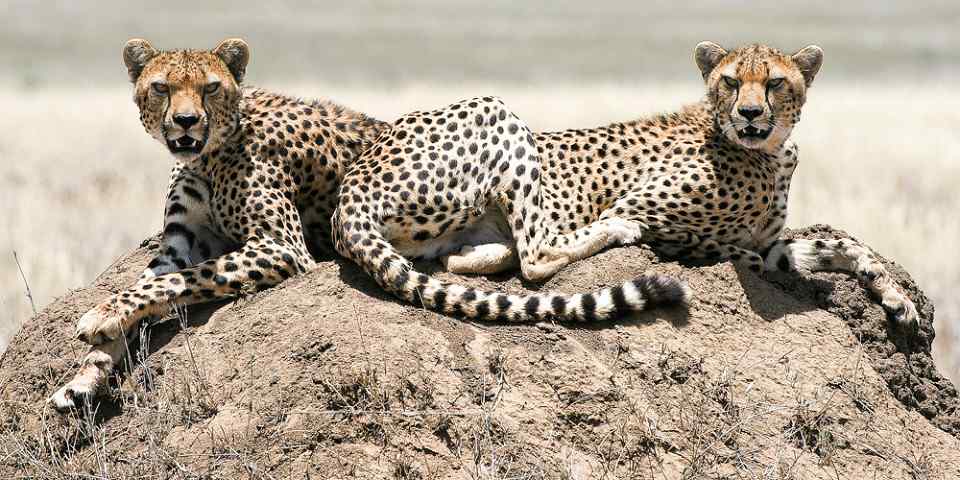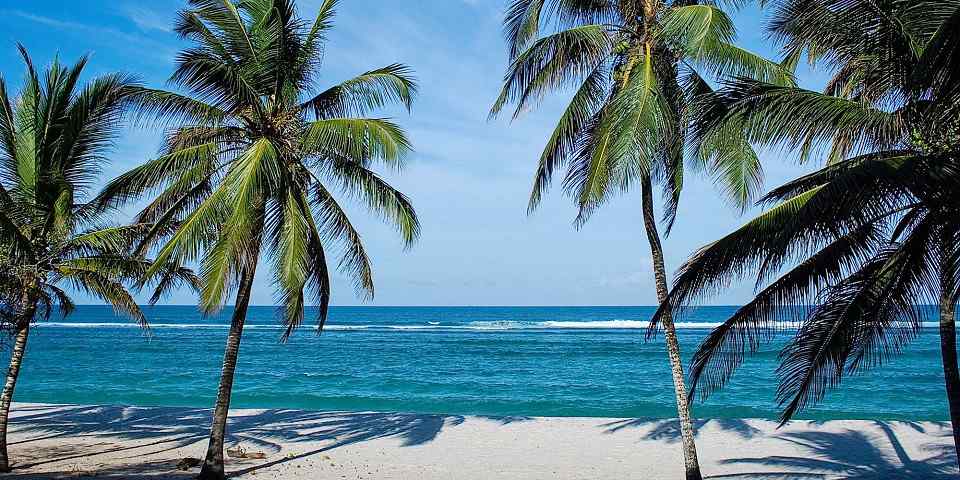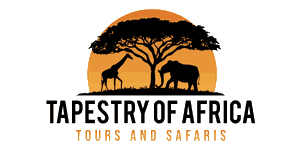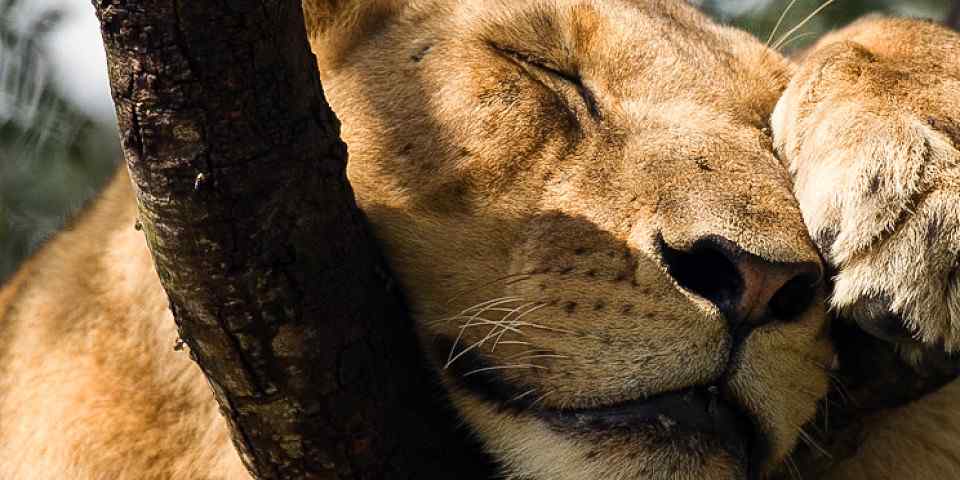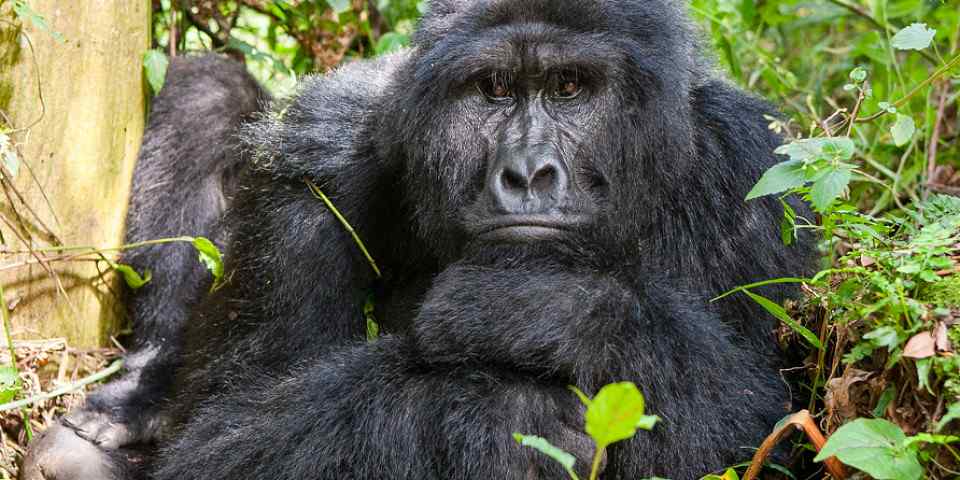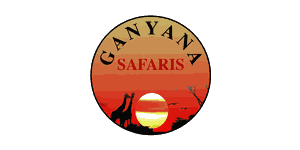Tour Length
Rates in USD $ – Change Currency
Per person, excl. international flightsOperator Rating
Other Tour Features
Filter by Operator
Filter by Accommodation
14-Day African Safari Tours
It would be possible to spend your whole life on safari in Africa and still not see it all. But no matter where you go, you’re in for a real treat. East Africa is the spiritual home of the African safari when it comes to exceptional wildlife and landscapes, but southern Africa is also an incredible safari destination. Savannah grasslands with flat-topped acacia trees, big cats chasing a gazelle, or elephants communing around a waterhole: they’re all possible as part of an almost endless array of safari options. There’s only so much you can do and see on a 14-day African safari, and it pays to plan carefully so that you can ensure you see as much as possible while you’re here.
-

14-Day Uganda Gorilla Chimpanzees and Wildlife Safari
$4,070 pp (USD)
Uganda: Private tour
Mid-range Lodge & Tented CampYou Visit: Entebbe (Start), Sipi Falls (Highlight), Kidepo Valley NP, Murchison Falls NP, Ziwa Rhino Ranch, Kibale NP (Chimps), Queen Elizabeth NP, Bwindi Impenetrable NP (Gorillas), Lake Bunyonyi, Lake Mburo NP, Entebbe (End)

Dav Safaris
4.9/5 – 112 Reviews
-
Top Rated Operator
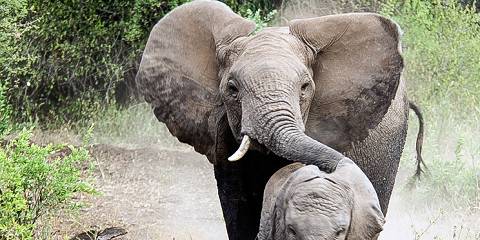
14-Day Tanzania's Grand Safari Expedition
$5,315 pp (USD)
Tanzania: Private tour
Mid-range Lodge & Tented CampYou Visit: Arusha (Start), Tarangire NP, Lake Manyara NP, Mto wa Mbu (Town), Lake Natron, Karatu District, Ngorongoro Crater, Ndutu (Southern Serengeti NP), Northern Serengeti NP, Serengeti NP, Arusha (End)

Paradise & Wilderness
4.8/5 – 224 Reviews
-
Top Rated Operator

14-Day Comfort Safari & Authentic Cultural Experience
$5,203 to $5,583 pp (USD)
Tanzania: Private tour
Mid-range Lodge & Tented CampYou Visit: Arusha (Start), Arusha NP, Tarangire NP, Lake Manyara NP, Lake Eyasi, Serengeti NP, Ngorongoro Highlands, Ngorongoro Crater, Kilimanjaro Airport (End)

African Big Cats Safaris
5.0/5 – 483 Reviews
-
Best Seller

14-Day Namibia Flying Safari
$15,499 to $25,099 pp (USD)
Namibia: Private tourLuxuryLodge & Tented Camp
You Visit: Windhoek (Start), Zannier Reserve, Kulala WR, Skeleton Coast NP, Kaokoland, Etosha NP, Windhoek (End)

Wayfairer Travel
4.8/5 – 184 Reviews
-
![14-Day -Day Uganda Luxury Safari and Gorila Adventure]()
14-Day -Day Uganda Luxury Safari and Gorila Adventure
$6,853 pp (USD)
Uganda: Private tourLuxuryLodge & Hotel
You Visit: Entebbe (Start), Kampala (City), Murchison Falls NP, Kibale NP (Chimps), Queen Elizabeth NP, Bwindi Impenetrable NP (Gorillas), Lake Bunyonyi, Lake Mburo NP, Jinja (Town), Entebbe (End)

Likana Safaris Uganda
5.0/5 – 30 Reviews
-
![14-Day Uganda Gorillas, Chimps and Wildlife Luxury Safari]()
14-Day Uganda Gorillas, Chimps and Wildlife Luxury Safari
$8,635 pp (USD)
Uganda: Private tourLuxuryLodge & Hotel
You Visit: Entebbe (Start), Mabamba Swamp, Ziwa Rhino Ranch, Murchison Falls NP, Kibale NP (Chimps), Queen Elizabeth NP, Ishasha Sector (Queen Elizabeth NP), Bwindi Impenetrable NP (Gorillas), Lake Bunyonyi, Lake Mburo NP, Entebbe Airport (End)

Pamoja Tours and Travel (Entebbe, UG)
4.8/5 – 59 Reviews
-
![14-Day Nature Camping Safari Tanzania off Beaten Track]()
14-Day Nature Camping Safari Tanzania off Beaten Track
$6,906 pp (USD)
Tanzania: Private tourBudgetCamping & Lodge
You Visit: Arusha (Start), Arusha NP, Lake Manyara NP, Lake Natron, Serengeti NP, Central Serengeti NP, Ngorongoro Highlands, Tarangire NP, Arusha (End)

I Dream of Africa
5.0/5 – 55 Reviews
-
![14-Day Wildlife Adventure Trip to the Pearl of Africa]()
14-Day Wildlife Adventure Trip to the Pearl of Africa
$5,797 pp (USD)
Uganda: Private tour
Mid-range Lodge & Guest HouseYou Visit: Entebbe (Start), Entebbe Airport (Entebbe), Murchison Falls NP, Kibale NP (Chimps), Queen Elizabeth NP, Ishasha Sector (Queen Elizabeth NP), Bwindi Impenetrable NP (Gorillas), Lake Bunyonyi, Lake Mburo NP, Entebbe (End)

Tubale Safaris
5.0/5 – 67 Reviews
-
![14-Day Luxury Grand Kenya Expedition]()
14-Day Luxury Grand Kenya Expedition
$6,159 to $9,239 pp (USD)
Kenya: Private tourLuxuryLodge & Tented Camp
You Visit: Nairobi (Start), Samburu NR, Sweetwaters (Chimp Sanctuary), Lake Nakuru NP, Masai Mara NR, Lake Naivasha (Naivasha), Amboseli NP, Tsavo West NP, Tsavo East NP, Diani Beach, Mombasa (End)

Tapestry of Africa Tours and Safaris
5.0/5 – 27 Reviews
-
![14-Day Mega Ugandan Safari]()
14-Day Mega Ugandan Safari
$4,865 to $4,920 pp (USD)
Uganda: Private tourBudgetLodge & Tented Camp
You Visit: Entebbe (Start), Entebbe Airport (Entebbe), Ziwa Rhino Ranch, Kidepo Valley NP, Murchison Falls NP, Kibale NP (Chimps), Queen Elizabeth NP, Bwindi Impenetrable NP (Gorillas), Lake Mburo NP, Entebbe (End)

Vibrant Holiday Safaris
4.8/5 – 45 Reviews
-
![14-Day Best of Uganda Safari Tour]()
14-Day Best of Uganda Safari Tour
$3,960 pp (USD)
Uganda: Private tour
Mid-range LodgeYou Visit: Entebbe (Start), Entebbe Airport (Entebbe), Murchison Falls NP, Kibale NP (Chimps), Queen Elizabeth NP, Ishasha Sector (Queen Elizabeth NP), Bwindi Impenetrable NP (Gorillas), Lake Bunyonyi, Lake Mburo NP, Entebbe (End)

NGONI Safaris Uganda
5.0/5 – 181 Reviews
-
![14-Day Beach Holiday and Game Drive Safari]()
14-Day Beach Holiday and Game Drive Safari
$5,368 to $7,206 pp (USD)
Kenya: Private tourLuxuryLodge & Tented Camp
You Visit: Nairobi (Start), Ol Pejeta Conservancy (Laikipia Plateau), Lake Nakuru NP, Masai Mara NR, Lake Naivasha (Naivasha), Amboseli NP, Tsavo West NP, Tsavo East NP, Diani Beach, Nairobi (End)

Nashibe Adventures
4.7/5 – 27 Reviews
-
![14-Day Uganda Holiday Safari Big 5 Gorillas and Chimps]()
14-Day Uganda Holiday Safari Big 5 Gorillas and Chimps
$5,940 to $6,490 pp (USD)
Uganda: Private tour
Mid-range Lodge & Tented CampYou Visit: Entebbe (Start), Murchison Falls NP, Kibale NP (Chimps), Queen Elizabeth NP, Bwindi Impenetrable NP (Gorillas), Lake Bunyonyi, Jinja (Town), Entebbe (End)

Ganyana Safaris Uganda
4.6/5 – 33 Reviews
-
![14-Day Kenya Diani Beach Holiday and Wildlife Safari]()
14-Day Kenya Diani Beach Holiday and Wildlife Safari
$5,253 to $6,862 pp (USD)
Kenya: Private tour
Mid-range Lodge & Tented CampYou Visit: Nairobi (Start), Ol Pejeta Conservancy (Laikipia Plateau), Lake Nakuru NP, Masai Mara NR, Lake Naivasha (Naivasha), Amboseli NP, Tsavo East NP, Diani Beach, Nairobi (End)

Trail Tracers Tours And Travels
5.0/5 – 1 Reviews
-
![14-Day Uganda Rwanda Study Tour & Gorilla Trekking Trip]()
14-Day Uganda Rwanda Study Tour & Gorilla Trekking Trip
$5,720 pp (USD)
Rwanda & Uganda: Shared tour (max 6 people per vehicle)BudgetLodge & Guest House
You Visit: Entebbe (Start), Entebbe Airport (Entebbe), Kampala (City), Jinja (Town), Ziwa Rhino Ranch, Lira (City), Gulu (City), Murchison Falls NP, Kibale NP (Chimps), Queen Elizabeth NP, Mgahinga Gorilla NP (Gorillas), Bwindi Impenetrable NP (Gorillas), Kigali, Kigali Airport (End)

Safari 2 Gorilla Tours
4.8/5 – 67 Reviews
-
![14-Day Uganda Safari –Northern Circuit]()
14-Day Uganda Safari –Northern Circuit
$7,093 pp (USD)
Uganda: Private tour
Mid-range Lodge & Tented CampYou Visit: Entebbe (Start), Sipi Falls (Highlight), Moroto (Karamoja), Kidepo Valley NP, Murchison Falls NP, Budongo Forest (Chimps), Ziwa Rhino Ranch, Entebbe (End)

All In Africa Safaris
5.0/5 – 20 Reviews
-
![14-Day The Best Round up of Uganda]()
14-Day The Best Round up of Uganda
$4,290 pp (USD)
Uganda: Shared tour (max 7 people per vehicle)
Mid-range Lodge & ResortYou Visit: Entebbe (Start), Jinja (Town), Ziwa Rhino Ranch, Murchison Falls NP, Hoima (Town), Queen Elizabeth NP, Bwindi Impenetrable NP (Gorillas), Lake Bunyonyi, Lake Mburo NP, Entebbe (End)

Entugga Adventure Safaris
5.0/5 – 12 Reviews
-

14-Day Summits & Savannas - Trekking & Walking Adventure
$4,543 pp (USD)
Uganda: Private tour
Mid-range Camping & LodgeYou Visit: Kampala (Start), Entebbe (City), Kibale NP (Chimps), Rwenzori Mountains (Mountain Range), Murchison Falls NP, Kampala (End)

Bush Wonderers
5.0/5 – 12 Reviews
-
![14-Day Big 5 Wildlife & Chimp Trek, Source of Nile Safari]()
14-Day Big 5 Wildlife & Chimp Trek, Source of Nile Safari
$4,538 pp (USD)
Uganda: Private tour
Mid-range Lodge & Tented CampYou Visit: Entebbe (Start), Ziwa Rhino Ranch, Murchison Falls NP, Budongo Forest (Chimps), Kidepo Valley NP, Moroto (Karamoja), Sipi Falls (Highlight), Jinja (Town), Entebbe (End)

Nyumbu Beyond Journeys
5.0/5 – 9 Reviews
-
![14-Day Mid-Range Uganda Safari]()
14-Day Mid-Range Uganda Safari
$8,004 pp (USD)
Uganda: Private tour
Mid-range Lodge & HotelYou Visit: Entebbe (Start), Murchison Falls NP, Kibale NP (Chimps), Queen Elizabeth NP, Bwindi Impenetrable NP (Gorillas), Lake Bunyonyi, Lake Mburo NP, Kampala (City), Entebbe Airport (End)

Voyage Balquees
5.0/5 – 7 Reviews
7 Questions About 14-Day African Safaris

Answered by
Anthony Ham
Anthony is a leading expert on Africa, having traveled extensively throughout the continent during the past two decades. He has visited and written about Africa for Lonely Planet and SafariBookings, and for magazines and newspapers around the world. He is also the author of ‘The Last Lions of Africa’.› More about Anthony
7 Questions About 14-Day African Safaris
 Anthony Ham
Anthony Ham
What can I expect from a 2-week African tour?
“What you can expect on your 14-day African safari depends on a number of variables, the most important of which are the location, the time of year and your budget. Each country has its own special feel and safari possibilities. And part of the fun in planning your tour is looking into what kind of safari you want to have and matching that to the place that offers just that kind of experience. In this, a little research can take you a very long way. Is your primary interest in animals or birds? Do you want to go off the beaten track or do you just want to see as many animals as possible regardless of the crowds? Do you want to camp under the stars or stay in luxury tented camps or lodges? How you answer these questions will go a long way to determining what you can expect on your safari.”
1Where should I go on a 14-day African safari?
“The possibilities when it comes to places to go on safari in Africa are endless, with East and southern Africa having the best selection of safari options. The bigger national parks and wildlife areas are excellent places around which to build your safari. If, for example, you’re yearning for the great migration in the Serengeti National Park (Tanzania) and/or Masai Mara National Reserve (Kenya), then you can expect astonishing wildlife sightings. Wildlife and landscape will also be at the heart of your safari in other iconic wildlife areas, such as Kruger National Park (South Africa), Etosha National Park (Namibia) or the Okavango Delta (Botswana), to name just a few. Elsewhere, it may be about the birding, hiking or cultural interactions. In general terms, southern Kenya and northern Tanzania make for an excellent safari circuit, anywhere in South Africa is fantastic, while Botswana and Namibia are outstanding, especially for a self-drive safari. Zambia and Zimbabwe can be just as good for wildlife, and they’re generally quieter (apart from Victoria Falls). Also consider the growing number of private reserves and community conservancies, which far fewer people visit, and where rules are more relaxed. Walking safaris, night drives and off-road driving are all usually possible. You’ll find these across Africa, but they’re especially widespread in Kenya, South Africa and Botswana.”
2What kinds of tours are available for a 14-day trip?
“Again, there is a broad range of tour possibilities for your 2-week safari. At the budget end of the spectrum, your safari will usually involve some form of camping, possibly with you being expected to participate in helping to set up and run the camp. At the luxury end, you’ll be staying in exclusive lodges and tented camps, often in secluded areas in some of the best wildlife destinations, and looked after with high levels of service. In between these two extremes is infinite variety in terms of comfort and cost. Another variable is whether you spend 2 weeks on a self-drive safari, in which you’ll drive your own 4x4 vehicle, or travel as part of a guided safari. If you’re on a guided tour, you will be driven around with a group of safari travelers with whom you’ll share vehicles and a professional guide. A version of this is the private safari, which is a more exclusive experience. You won’t be traveling as part of a group, and you’ll have your own private guide. Private safaris are, of course, usually at the luxury end of the market.”
3What is the best time of the year for an African tour?
“On a continent the size of Africa, there are no hard-and-fast rules. But it remains generally true that the Dry season (which usually runs from May or June to September or October in most areas) is the best time to see animals. This is when safari trails are in the best condition. And during the course of any Dry season, wildlife-viewing conditions get better as the season progresses. That’s because as waterholes and rivers dry up, wildlife tends to stay closer to the remaining water sources, making the animals easier to find. Whenever the rainy season occurs (usually from November to April or May, although this can vary), heavy rains can make many, but by no means all, tracks impassable. But this rarely happens for the entire rainy season, and very often you will face no more disruption than a daily afternoon storm. Advantages of visiting at this time are that visitor numbers are usually lower, prices are often considerably cheaper, and November is when large numbers of migratory bird species arrive in Africa and usually stay until around April. These are great months in which to go birding.”
4How much does a 14-day African safari cost?
“The cost of a 2-week African safari varies enormously, starting at around US$100 to US$150 per person per day for the most basic budget camping safari and considerably more than US$500 per person per day for the most luxurious 2 weeks imaginable. It’s not just the type of safari and level of accommodation comfort you choose that influence your safari costs, although these are certainly important considerations. Other factors that will determine the price include: how you get around (by air, in a group vehicle, or your own 4x4); the country or countries you’re traveling in; the time of year or season; and whether you’re on a private or a group safari. Most safari operators can also tailor your safari to your budget, offering different accommodation options depending on how much you wish to spend.”
5Is 14 days enough time for an African trip?
“Two weeks is never enough for exploring Africa on safari, but it’s certainly an excellent start. A 14-day safari means that you should be able to focus on anywhere between three and five different areas, giving you an excellent range of experiences. Although it can increase the cost, flying between each of your safari stops significantly reduces the amount of time you spend traveling and allows you to maximize the amount of time you actually spend on safari looking at animals or birds, exploring the amazing scenery, or spending time with the locals. To make sure that you make the most of your precious time on African soil, take the time to carefully plan your itinerary. This includes asking lots of questions of your tour operator about what’s possible.”
6Should I go to several countries on a 2-week safari?
“It all depends on what you want to get out of your tour. In this sense, it can be useful to think more about experiences rather than countries when planning your 14-day African safari. Some countries offer all you could ever need for you to enjoy a broad range of safari experiences. Examples include Kenya, Tanzania and South Africa. Staying in one country has the advantage of reducing the amount of time wasted crossing time-consuming borders. At the same time, a number of well-worn cross-border safari circuits (southern Kenya and northern Tanzania, for example, or Botswana and Namibia) allow you to experience the best of two countries, each of which has its own special characteristics. Whichever combination of parks or countries you choose to go with, as long as you plan carefully, you’re sure to have a wonderful time.”
7




